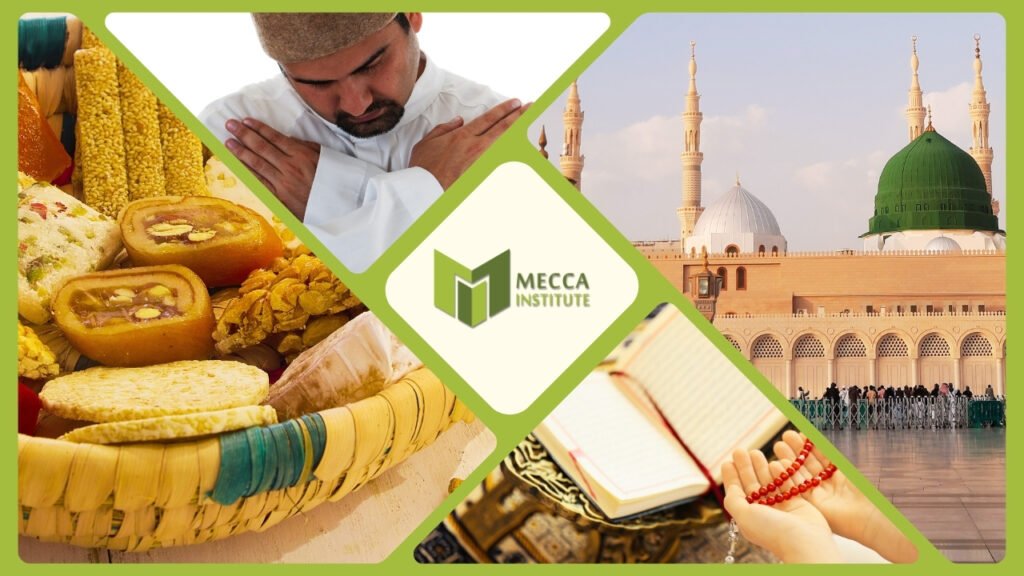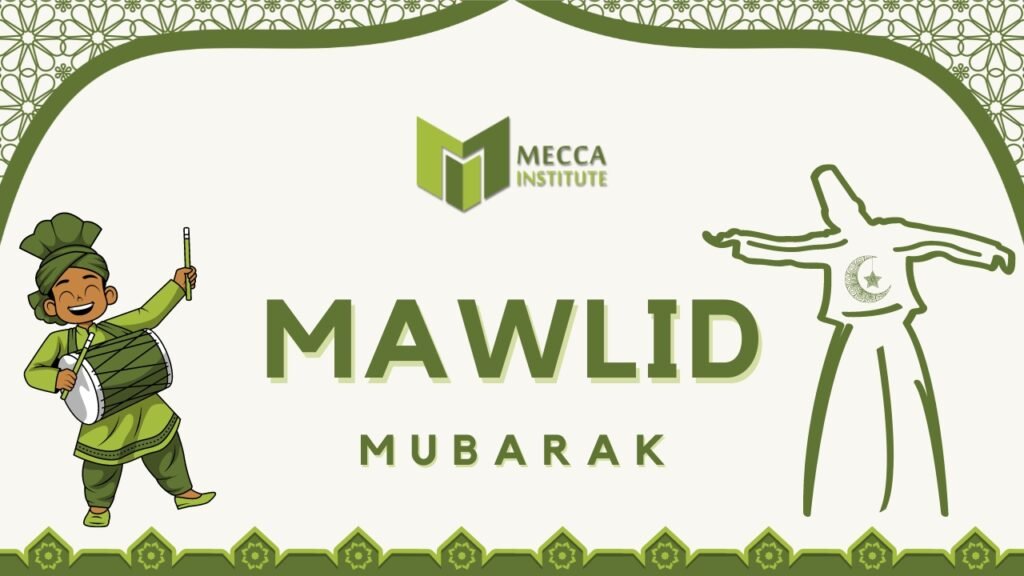Mawlid is a major religious festival across Muslim societies, and Imam Daayiee Abdullah shares what you need to know.
The first time I experienced this festival, I was in Egypt, where the Islamic calendar plays a major role in everyday life. It is a major celebration on the 12th day of Rabi’ al-Awwal, the third month of the calendar.
For Muslims worldwide, the day is has a lot of spiritual and cultural significance, and that is why I want to present it in its fullness.
There are historical roots and regional variations in observance. I will also provide guidance for non-Muslims on how to engage respectfully with this occasion.
What Is Mawlid?
Mawlid comes from the Arabic word for “birth.” It is the celebration of the birth of the Prophet Muhammad, the final prophet in Islam.
Like Ramadan, this festival, therefore, is a time for Muslims to express their love and reverence for a man whose life and teachings are central to the faith.
Mawlid is more than a commemoration of Muhammad’s physical birth. It is also an occasion to reflect on his spiritual and moral teachings.
Muslims believe use his life serves as a model of ideal conduct. His teachings on compassion, justice, and faith are integral to Islamic ethics and are a major highlight during Mawlid through various religious and cultural practices.
Observances of the festival, therefore, vary widely. They include recitations of poems and hymns (or Qasida), public processions, communal prayers, and feasting.
In many societies, the celebration also includes reciting the Quran and Hadith (sayings and actions of the Prophet). You will also notice people reflecting on his life, and participating in charitable activities.
Meanwhile, the festival is also a unifying event for Muslims. It brings together people from diverse backgrounds to celebrate their shared faith.
Throughout many cultures, this is a day when collective reverence is a central aspect of celebration, reinforcing bonds within the Muslim Ummah.
Mawlid al-Nabi
Is Mawlid haram? The question of whether the festival is forbidden or permissible is a topic of debate among scholars and various Islamic traditions.
The differing opinions clearly show the broader theological and interpretative differences within the faith.
However, we should not deny its place as a major festival that arguably competes with others like Eid al-Fitr.
A summary of major theological positions follows.
The Sunnis
For many Sunni Muslims, especially moderate ones, the festival is a positive practice that nurtures love and reverence for the Prophet Muhammad.
In these communities, the celebration has an association with acts of devotion. There are efforts of increasing prayers, charitable giving, and recitations of the Prophet’s praises.
Although not all Sunnis approve, those who do argue that celebration is an expression of gratitude and love. They say it aligns with the broader Islamic principles of honoring and following the Prophet’s example.
Conversely, Salafi Sunnis and some other conservative Islamic groups view Mawlid as an innovation (bid’ah). They believe it was not practiced by the Prophet Muhammad or his companions.
For these groups, introducing new practices into religious observance is contrary to the purity of the original teachings of Islam. They argue that celebrating Mawlid may lead to the introduction of un-Islamic elements and detract from the focus on core Islamic practices.
The Shi’ites
Many Shia Muslims embrace Mawlid as an important religious observance, with special emphases on devotion to the Prophet Muhammad and his family.
For Shia communities, the festival is an opportunity to celebrate the Prophet’s life and teachings.
It is also a chance to highlight the significance of his family in Islamic history. Shias tend to show more public devotion to not just the Prophet but his family, including his son-in-law and cousin, Ali.
Observances may include special prayers, recitations of Hadith, and public lectures about the Prophet and his family.
Milād-e Payāmbar, Persian for “Birth of the Prophet,” is a major festival in Iran, the largest Shia country.
The Sufis
In Sufism, Mawlid al-Nabi, the celebration of the Prophet Muhammad’s birth, is highly popular.
Sufis celebrate with deep devotion through recitations of poetry and hymns praising the Prophet, and engaging in Dhikr (remembrance of God).
These practices show their devotion to the spiritual connection and love for the Prophet.
All of the major Sufi schools celebrate Mawlid, with some presenting more fanfare than others.
The Qadiriyya, Chishti, and Naqshbandi Sufi orders are all notable for their enthusiastic celebrations.
The diversity of opinions, therefore, highlights the complex nature of Islamic jurisprudence and the importance of understanding the specific context and theological perspective of different Muslim communities.
Whether viewed as permissible or not, Mawlid continue to be a subject of considerable discussion and interpretation within the broader Islamic tradition.
History of Mawlid

The history of Mawlid is another area that deserves special attention. It is a testament to the evolving nature of Islamic practices and the ways in which religious observances have developed over time.
The earliest followers of Islam revered the Prophet Muhammad but did not have a formalized celebration of his birth.
As it is not part of the 5 pillars of Islam, the Prophet did not establish a specific annual commemoration. Therefore, early Muslim communities expressed their respect for him in other ways.
The formalization of Mawlid as a distinct annual celebration began during the Fatimid Caliphate in the 11th century.
Because of their Shia theological positions, the institutionalization of the celebration was natural.
They organized events and rituals, and it was this early formalization that spread of the festival in various regions of the Islamic world.
By the 13th and 14th centuries, the festival had become more widely popular across different Islamic cultures.
In contemporary times, the festival’s celebration takes in numerous forms, presenting the diverse cultural and religious practices of Muslims around the world.
Festival Diversity
Mawlid is a major celebration across different regions, and in many ways each have their own unique cultural elements to the observance.
In Indonesia, for example, Mawlid is the grand festival of Sekaten, a week-long event that combines Islamic and Javanese traditions.
The festival features a series of cultural activities, including traditional Javanese music performances (gamelan), parades, and fairs.
In Arab countries, Mawlid is a public celebration. In Egypt, the festivities include the distribution of sweets and treats, such as “Mawlid sweets.” They are enjoyed by families and communities.
Nigerian use “Id el Maulud,” which is another term for the festival. There is a lot of emphasis on community and charity, and many Muslims engage in acts of kindness during the celebration.
Across South Asia, the festival see elaborate celebrations. The celebrations include public processions, recitations of the Quran and Hadith, and gatherings at mosques and community centers.
In Turkey, “Mevlit sekeri” is a special type of sweets that are popular during Mawlid.
Non-Muslims Participation
For non-Muslims, understanding Mawlid and approaching it with respect will be be a positive intercultural experience.
During the festival, Muslims greet each other with phrases such as “Mawlid Mubarak” or “Happy Mawlid.”
Like other holidays, this is a way of expressing their good wishes for the occasion.
If you are aware of someone celebrating Mawlid, consider reaching out. Acknowledging the significance of the day with a respectful greeting will be a thoughtful gesture.
If you get an invitation to a Mawlid celebration or event, it is important to go with an open mind and respect for the religious practices.
Pay attention to any specific guidelines or customs, such as dress codes or participation in rituals.
Conclusion
Mawlid teaches us about love, respect, and emulation of the Prophet Muhammad’s virtues.
So, how do you celebrate it if you haven’t grown up in a Muslim society? You can incorporate it into your calendar by marking the date.
Participating in community events or educational sessions about the Prophet’s life is always a great idea.
For those of you who are non-Muslim, you can learn from the celebration by understanding its significance. Also joining in respectful gatherings if invited is a great way to experience.
May Allah continue to guide us all.
Imam Daayiee Abdullah is the Executive Director of MECCA Institute and the author of “Progressive Islam,” a historic book that defines Progressive Islam.

